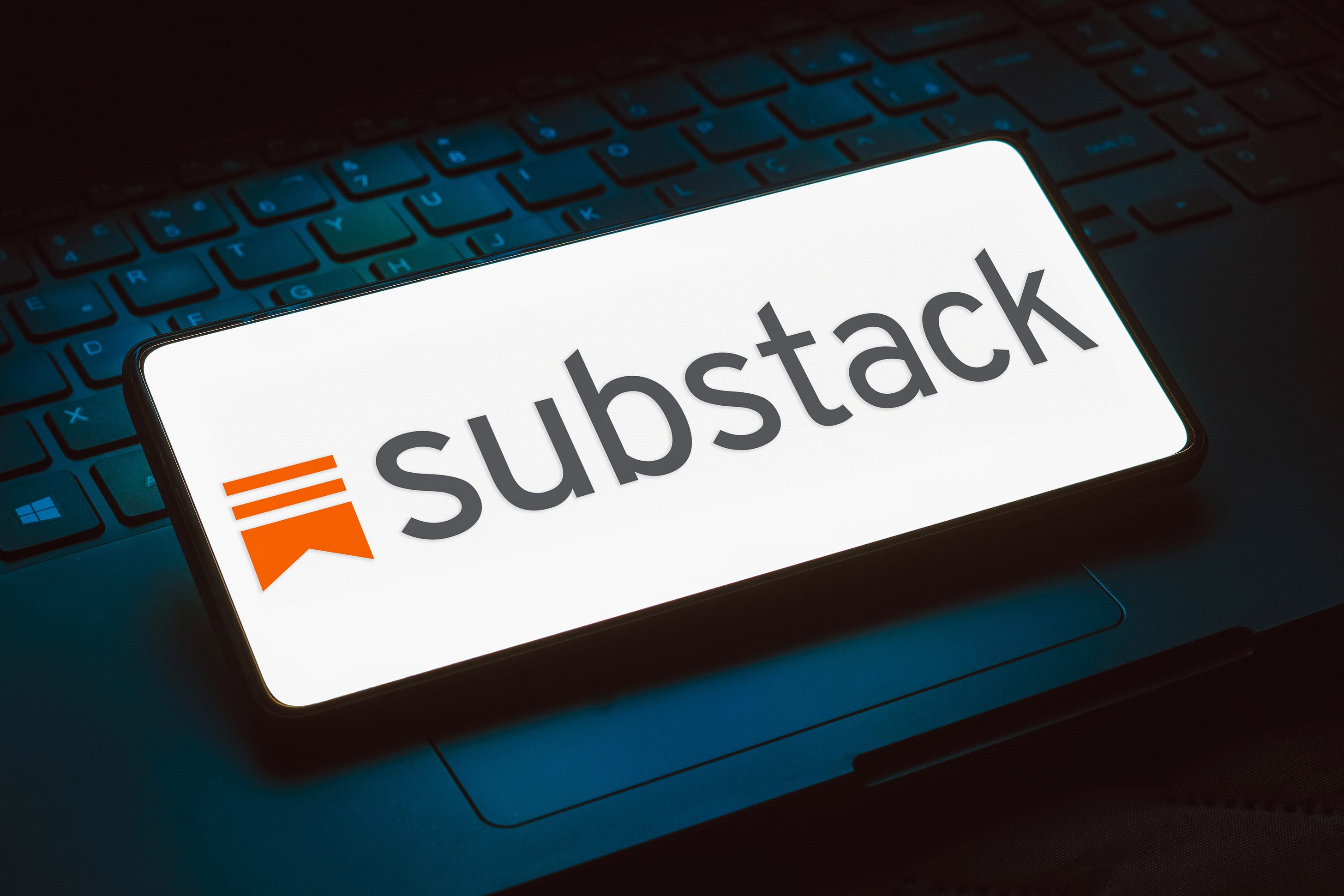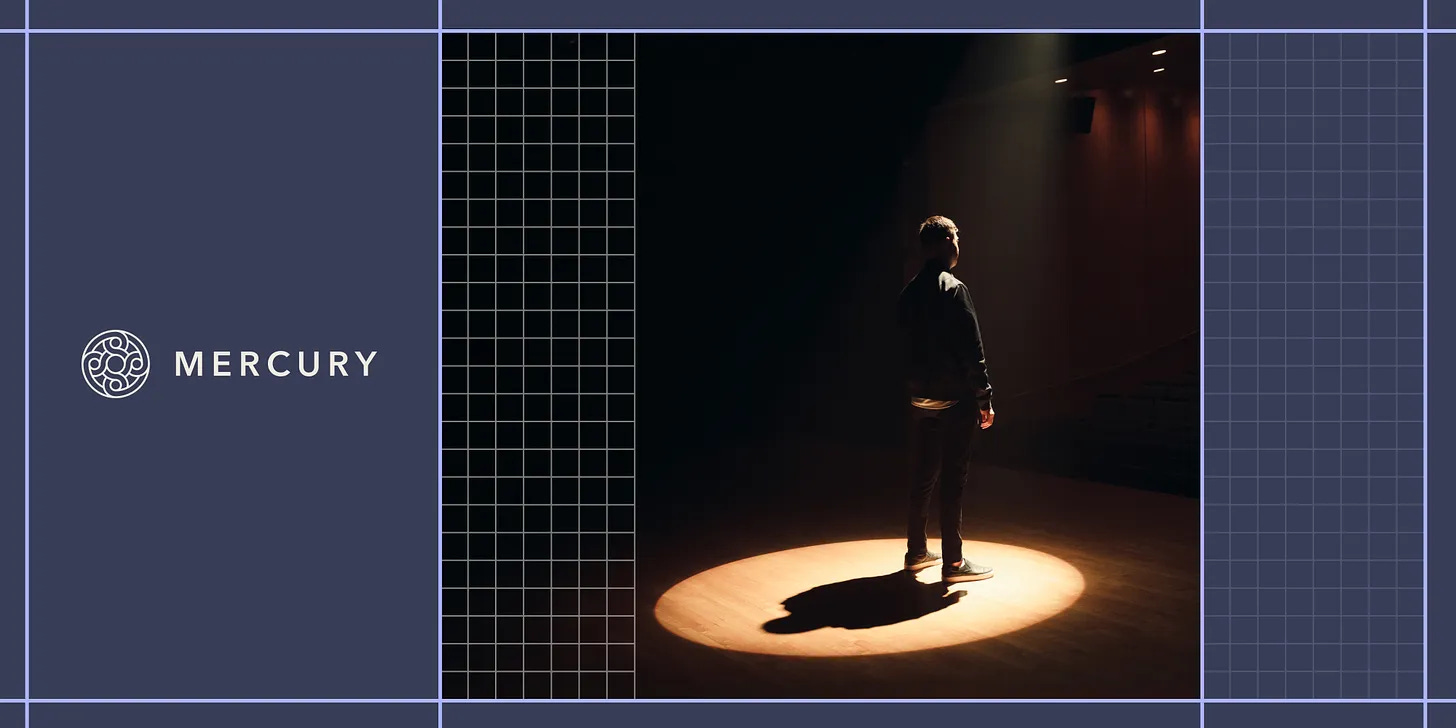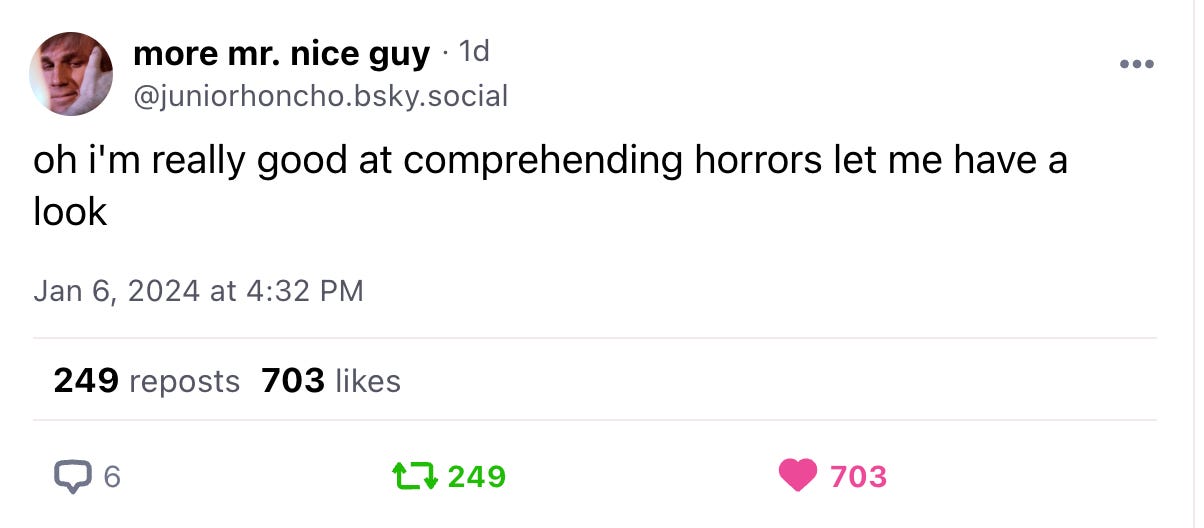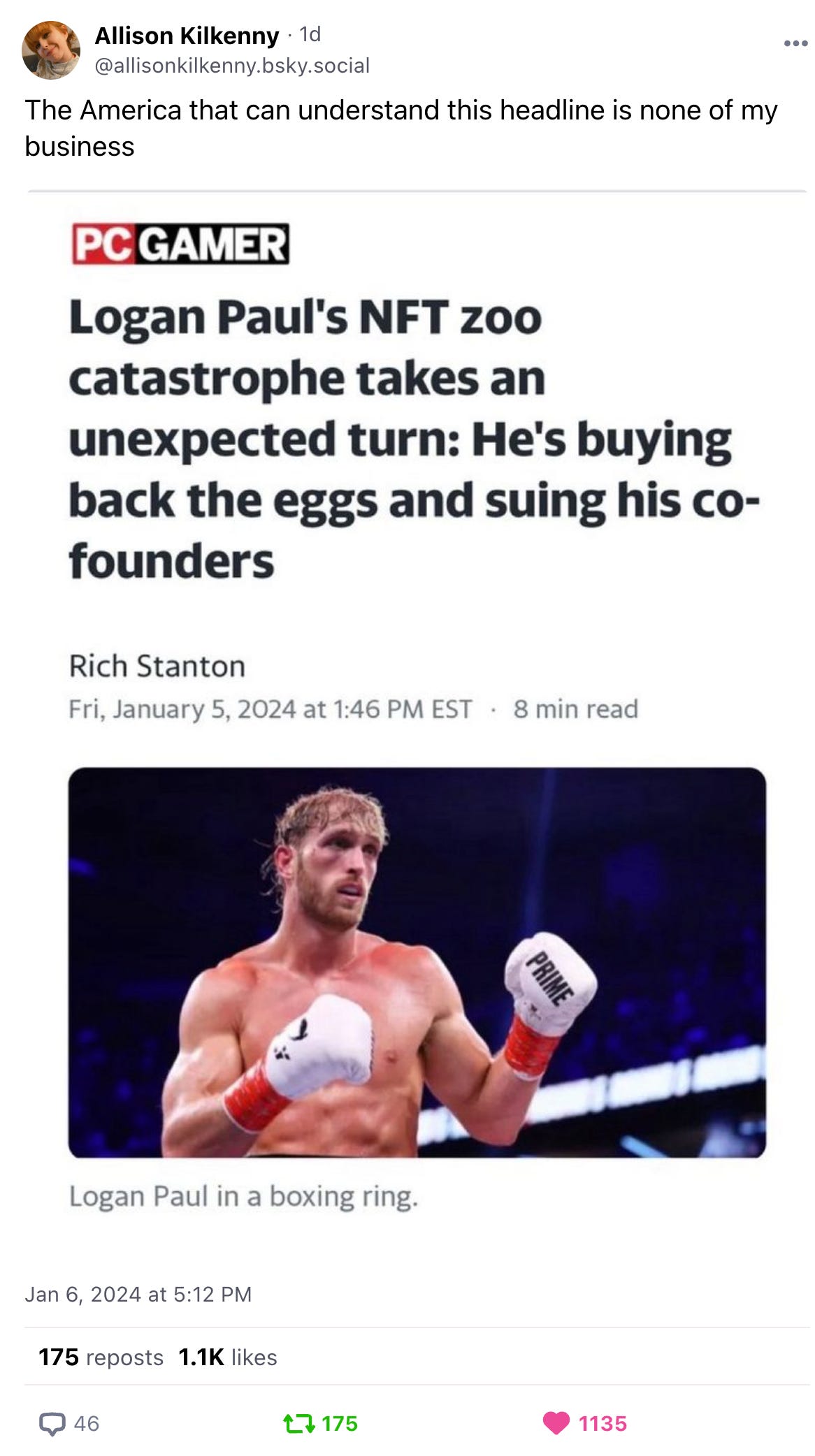Substack says it will remove Nazi publications from the platform
Here’s a free edition of Platformer for you with our first scoop of the year. Upgrade your subscription today and we’ll email you first with all our scoops — like our recent piece on the severe hallucinations experienced by Amazon’s flagship new chatbot, Q. Or you can pre-order Zoë’s rollicking new book about Twitter! Just click here.
Substack says it will remove Nazi publications from the platformNazi content violates rules against incitement to violence, the company saysSubstack is removing some publications that express support for Nazis, the company said today. The company said this did not represent a reversal of its previous stance, but rather the result of reconsidering how it interprets its existing policies. As part of the move, the company is also terminating the accounts of several publications that endorse Nazi ideology and that Platformer flagged to the company for review last week. The company will not change the text of its content policy, it says, and its new policy interpretation will not include proactively removing content related to neo-Nazis and far-right extremism. But Substack will continue to remove any material that includes “credible threats of physical harm,” it said. In a statement, Substack’s co-founders told Platformer:
Substack’s statement comes after weeks of controversy related to the company’s mostly laissez-faire approach to content moderation. In November, Jonathan M. Katz published an article in The Atlantic titled “Substack Has a Nazi Problem.” In it, he reported that he had identified at least 16 newsletters that depicted overt Nazi symbols, and dozens more devoted to far-right extremism. Last month, 247 Substack writers issued an open letter asking the company to clarify its policies. The company responded on December 21, when Substack co-founder published a blog post arguing that “censorship” of Nazi publications would only make extremism worse. McKenzie also wrote that “we don’t like Nazis either” and said Substack wished “no-one held those views.” But “we don't think that censorship (including through demonetizing publications) makes the problem go away,” he wrote. “In fact, it makes it worse. We believe that supporting individual rights and civil liberties while subjecting ideas to open discourse is the best way to strip bad ideas of their power.” The statement seemed to be at odds with Substack’s published content guidelines, which state that “Substack cannot be used to publish content or fund initiatives that incite violence based on protected classes.” In its aftermath, several publications left the platform. Others, including Platformer, said they would leave if the company did not remove pro-Nazi publications. Meanwhile, more than 100 other Substack writers, including prominent names like Bari Weiss and Richard Dawkins, signed a post from writer Elle Griffin calling on Substack to continue with its mostly hands-off approach to platform-level moderation. From its inception, McKenzie and Substack co-founder Chris Best have touted freedom of speech as one of Substack’s core virtues. As a result, the platform has been embraced by fringe thinkers, who have built large businesses while promoting anti-vaccine pseudo-science, Covid conspiracy theories and other material that is generally restricted on mainstream social networks. Substack has defended its approach by arguing that it is built differently from social networks, which optimize for engagement rather than subscription revenue. The company says it employs a “decentralized” approach to moderation that allows individual readers to decide which writers they want to subscribe to; and lets writers determine which comments they will allow and which blogs they will recommend. (Incidentally, this approach means that you can’t currently report comments directly to Substack: only writers receive your reports. Platformer has reviewed several cases of violent material and death threats in Substack comments.) At the same time, over the past couple years Substack has come to more closely resemble the social networks it often criticizes. Each week, Substack sends users a personalized, algorithmically ranked digest of posts from writers they don’t yet follow — a feature that can help fringe publications build larger audiences and make more money than they would otherwise. And last year Substack launched Notes, a text-based social feed similar to Twitter that also surfaces personalized content in a ranked feed. Notes can also give heightened visibility and free promotion to extremists. The question now is whether taking action against some pro-Nazi accounts will shift the perception that Substack is a home for the most extreme ideologies, and prevent an exodus among writers who prefer more aggressive content moderation. In recent weeks, Platformer has worked with other journalists and extremism researchers in an effort to understand the scope of far-right content on the platform. We’ve now reviewed dozens of active, monetized publications that advance violent ideologies, including anti-Semitism and the great replacement theory. Substack has argued that extremist publications represent only a small fraction of newsletters on the platform, and as far as we can tell this is true. At the same time, the site’s recommendations and social networking infrastructure is designed to enable individual publications to grow quickly. And the company’s outspoken embrace of fringe viewpoints all but ensures that the number of extremist publications on the platform will grow. The company is now in a difficult position. Having branded itself as a bastion of free speech, any changes to its content policy risks driving away writers who chose the platform in part for its rejection of aggressive content moderation. At the same time, other publications — Platformer included — have lost scorse of paying customers who do not want to contribute to a platform that they see as advancing the cause of extremism. In coming days, explicitly Nazi publications on Substack are slated to disappear. But the greater divide within its user base over content moderation will remain. The next time the company has a content moderation controversy — and it will — expect these tensions to surface again. What this means for PlatformerSubstack’s removal of Nazi publications resolves the primary concern we identified here last week. At the same time, as noted above, this issue has raised concerns that go beyond the small group of publications that violate the company’s existing policy guidelines. As we think through our next steps, we want to hear from you. If you have unsubscribed from Platformer or other publications over the Nazi issue, does the company’s new stance resolve your concerns? Or would it take more? If so, what? Paid subscribers can comment below; everyone is welcome to email us with their thoughts. SponsoredInvestors are focused on these metrics.Startups should take notice. It takes more than a great idea to make your ambitions real. That’s why Mercury goes beyond banking* to share the knowledge and network startups need to succeed. In this article, they shed light on the key metrics investors have their sights set on right now. Even in today’s challenging market, investments in early-stage startups are still being made. That’s because VCs and investors haven’t stopped looking for opportunities — they’ve simply shifted what they are searching for. By understanding investors’ key metrics, early-stage startups can laser-focus their next investor pitch to land the funding necessary to take their company to the next stage. Read the full article to learn how investors think and how you can lean into these numbers today. *Mercury is a financial technology company, not a bank. Banking services provided by Choice Financial Group and Evolve Bank & Trust®; Members FDIC. Platformer has been a Mercury customer since 2020. This sponsorship gets us 5% closer to our goal of hiring a reporter in 2024. Governing
Industry
Those good postsFor more good posts every day, follow Casey’s Instagram stories. (Link) (Link) (Link) Talk to usSend us tips, comments, questions, and your feedback on Substack’s Nazi enforcement: casey@platformer.news and zoe@platformer.news. By design, the vast majority of Platformer readers never pay anything for the journalism it provides. But you made it all the way to the end of this week’s edition — maybe not for the first time. Want to support more journalism like what you read today? If so, click here: |
Older messages
Why Substack is at a crossroads
Friday, January 5, 2024
Some thoughts on platforms and Nazis
14 predictions about 2024
Friday, December 15, 2023
AI! Elections! Threads! Media! And more
An Epic win jolts Google
Wednesday, December 13, 2023
The company's app store monopoly has been ruled illegal, and the ramifications will extend well beyond Fortnite
Google unveils Gemini
Wednesday, December 6, 2023
CEO Sundar Pichai and DeepMind's Demis Hassabis talk to Platformer about the promise — and product roadmap — of their answer to GPT-4
Amazon’s Q has ‘severe hallucinations’ and leaks confidential data in public preview, employees warn
Saturday, December 2, 2023
Some hallucinations could 'potentially induce cardiac incidents in Legal,' according to internal documents
You Might Also Like
🗞 What's New: How 5 vibe-coded games went viral w/out big audiences
Wednesday, March 12, 2025
Also: The definitive AI glossary ͏ ͏ ͏ ͏ ͏ ͏ ͏ ͏ ͏ ͏ ͏ ͏ ͏ ͏ ͏ ͏ ͏ ͏ ͏ ͏ ͏ ͏ ͏ ͏ ͏ ͏ ͏ ͏ ͏ ͏ ͏ ͏ ͏ ͏ ͏ ͏ ͏ ͏ ͏ ͏ ͏ ͏ ͏ ͏ ͏ ͏ ͏ ͏ ͏ ͏ ͏ ͏ ͏ ͏ ͏ ͏ ͏ ͏ ͏ ͏ ͏ ͏ ͏ ͏ ͏ ͏ ͏ ͏ ͏ ͏ ͏ ͏ ͏ ͏ ͏ ͏ ͏ ͏ ͏ ͏ ͏ ͏ ͏ ͏
⏳ 72 hours left! Don’t miss the biggest ecommerce sourcing event of the year
Tuesday, March 11, 2025
This is your last chance to join 9+ sourcing experts LIVE (for FREE!) Hey Friend , Time is running out! ⏳ In just 72 hours, the Ecommerce Product Sourcing & Manufacturing Summit goes live—and if
Positioning Startups in the Age of AI
Tuesday, March 11, 2025
Tomasz Tunguz Venture Capitalist If you were forwarded this newsletter, and you'd like to receive it in the future, subscribe here. Positioning Startups in the Age of AI How do you position and
AI strategies for industrials
Tuesday, March 11, 2025
where major players are making moves, and what it means for the future of the space Hi there, AI is top of mind for executives in the industrial sector – and for good reason. The biggest names in
[CEI] Chrome Extension Ideas #181
Tuesday, March 11, 2025
ideas for Twitter/X, YouTube, Email, and Notion ͏ ͏ ͏ ͏ ͏ ͏ ͏ ͏ ͏ ͏ ͏ ͏ ͏ ͏ ͏ ͏ ͏ ͏ ͏ ͏ ͏ ͏ ͏ ͏ ͏ ͏ ͏ ͏ ͏ ͏ ͏ ͏ ͏ ͏ ͏ ͏ ͏ ͏ ͏ ͏ ͏ ͏ ͏ ͏ ͏ ͏ ͏ ͏ ͏ ͏ ͏ ͏ ͏ ͏ ͏ ͏ ͏ ͏ ͏ ͏ ͏ ͏ ͏ ͏ ͏ ͏ ͏ ͏ ͏ ͏ ͏ ͏ ͏ ͏ ͏ ͏ ͏
$2.7M ARR
Tuesday, March 11, 2025
IRL events coming to TGA ͏ ͏ ͏ ͏ ͏ ͏ ͏ ͏ ͏ ͏ ͏ ͏ ͏ ͏ ͏ ͏ ͏ ͏ ͏ ͏ ͏ ͏ ͏ ͏ ͏ ͏ ͏ ͏ ͏ ͏ ͏ ͏ ͏ ͏ ͏ ͏ ͏ ͏ ͏ ͏ ͏ ͏ ͏ ͏ ͏ ͏ ͏ ͏ ͏ ͏ ͏ ͏ ͏ ͏ ͏ ͏ ͏ ͏ ͏ ͏ ͏ ͏ ͏ ͏ ͏ ͏ ͏ ͏ ͏ ͏ ͏ ͏ ͏ ͏ ͏ ͏ ͏ ͏ ͏ ͏ ͏ ͏ ͏ ͏ ͏ ͏ ͏ ͏
Why you’re so angry at work (and what to do about it)
Tuesday, March 11, 2025
A practical framework for transforming big feelings into wisdom ͏ ͏ ͏ ͏ ͏ ͏ ͏ ͏ ͏ ͏ ͏ ͏ ͏ ͏ ͏ ͏ ͏ ͏ ͏ ͏ ͏ ͏ ͏ ͏ ͏ ͏ ͏ ͏ ͏ ͏ ͏ ͏ ͏ ͏ ͏ ͏ ͏ ͏ ͏ ͏ ͏ ͏ ͏ ͏ ͏ ͏ ͏ ͏ ͏ ͏ ͏ ͏ ͏ ͏ ͏ ͏ ͏ ͏ ͏ ͏ ͏ ͏ ͏ ͏ ͏ ͏ ͏ ͏ ͏
Growth Newsletter #244
Tuesday, March 11, 2025
How not to write a terrible cold email ͏ ͏ ͏ ͏ ͏ ͏ ͏ ͏ ͏ ͏ ͏ ͏ ͏ ͏ ͏ ͏ ͏ ͏ ͏ ͏ ͏ ͏ ͏ ͏ ͏ ͏ ͏ ͏ ͏ ͏ ͏ ͏ ͏ ͏ ͏ ͏ ͏ ͏ ͏ ͏ ͏ ͏ ͏ ͏ ͏ ͏ ͏ ͏ ͏ ͏ ͏ ͏ ͏ ͏ ͏ ͏ ͏ ͏ ͏ ͏ ͏ ͏ ͏ ͏ ͏ ͏ ͏ ͏ ͏ ͏ ͏ ͏ ͏ ͏ ͏ ͏ ͏ ͏ ͏ ͏ ͏
🛎️ Hey Friend , did you get your product costs wrong? (Here’s how to fix it)
Tuesday, March 11, 2025
Do this to lock in the best ALL-IN price from your supplier—no hidden fees, no last-minute price hikes eating into your margins. Hey Friend , Ask Kian Golzari, one of the top product sourcing experts
The next French unicorns
Tuesday, March 11, 2025
+ Arrival shuts down operations; 'another DeepSeek moment'? View in browser Powered by Vanta Author-Martin by Martin Coulter Good morning there, Chinese AI startup Monica has raised alarm bells





